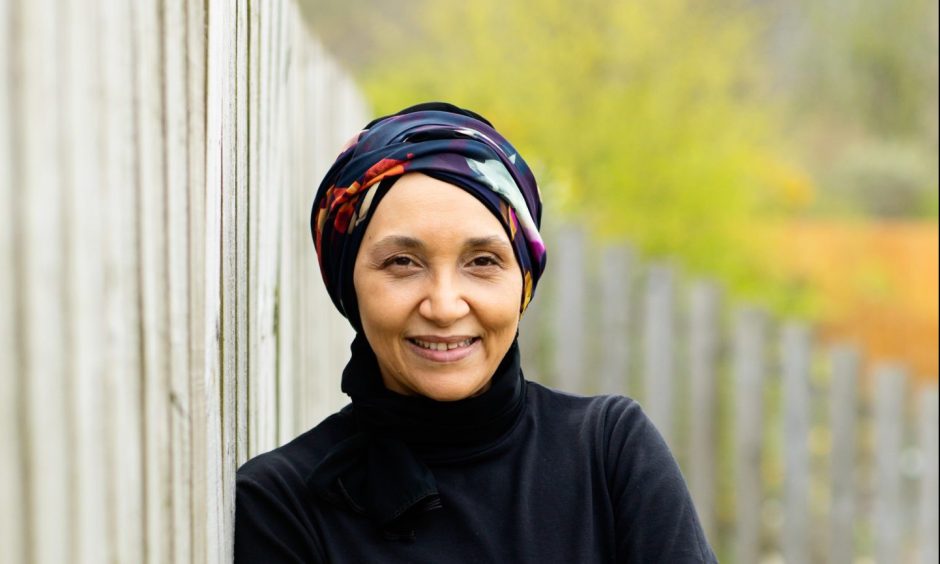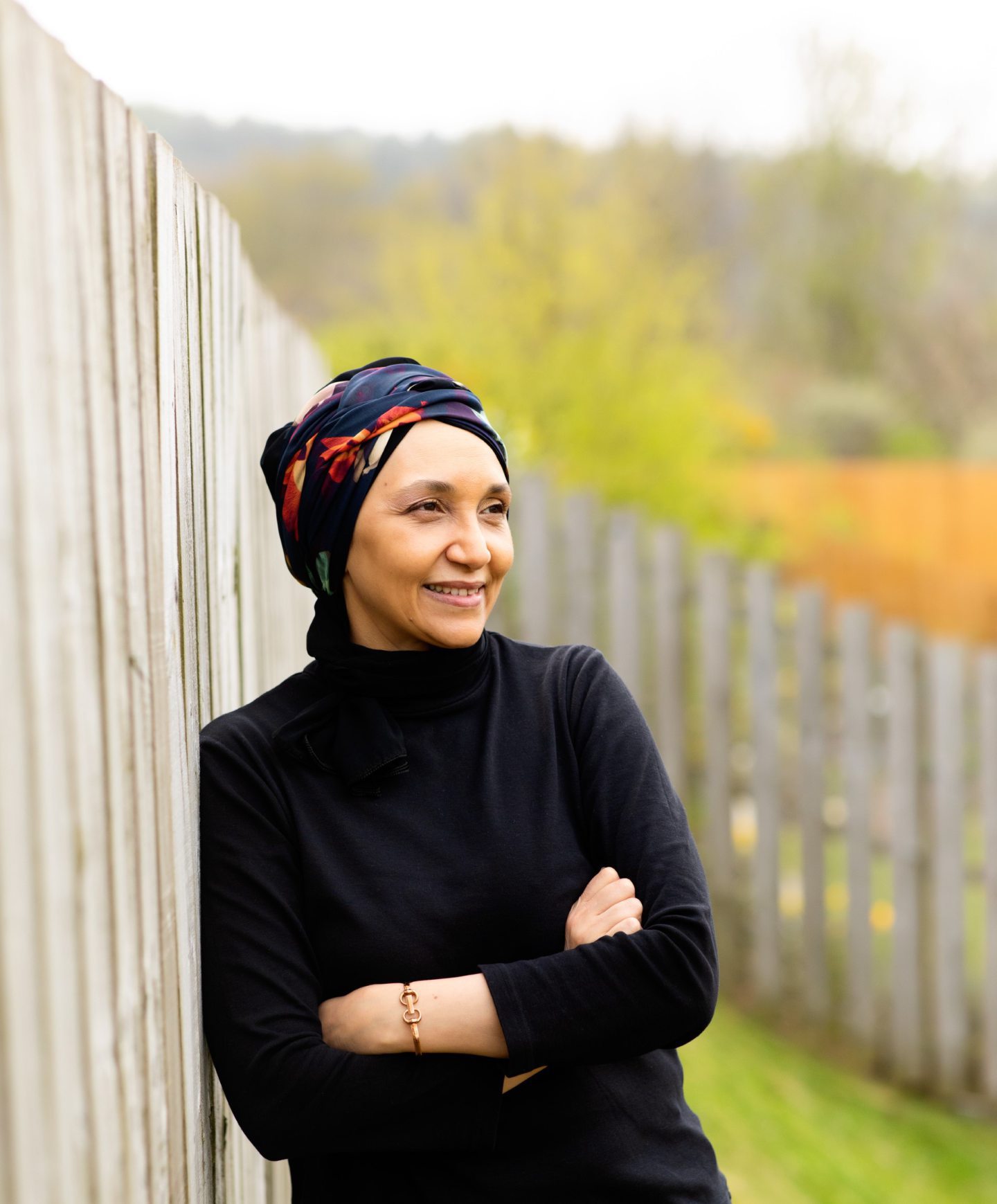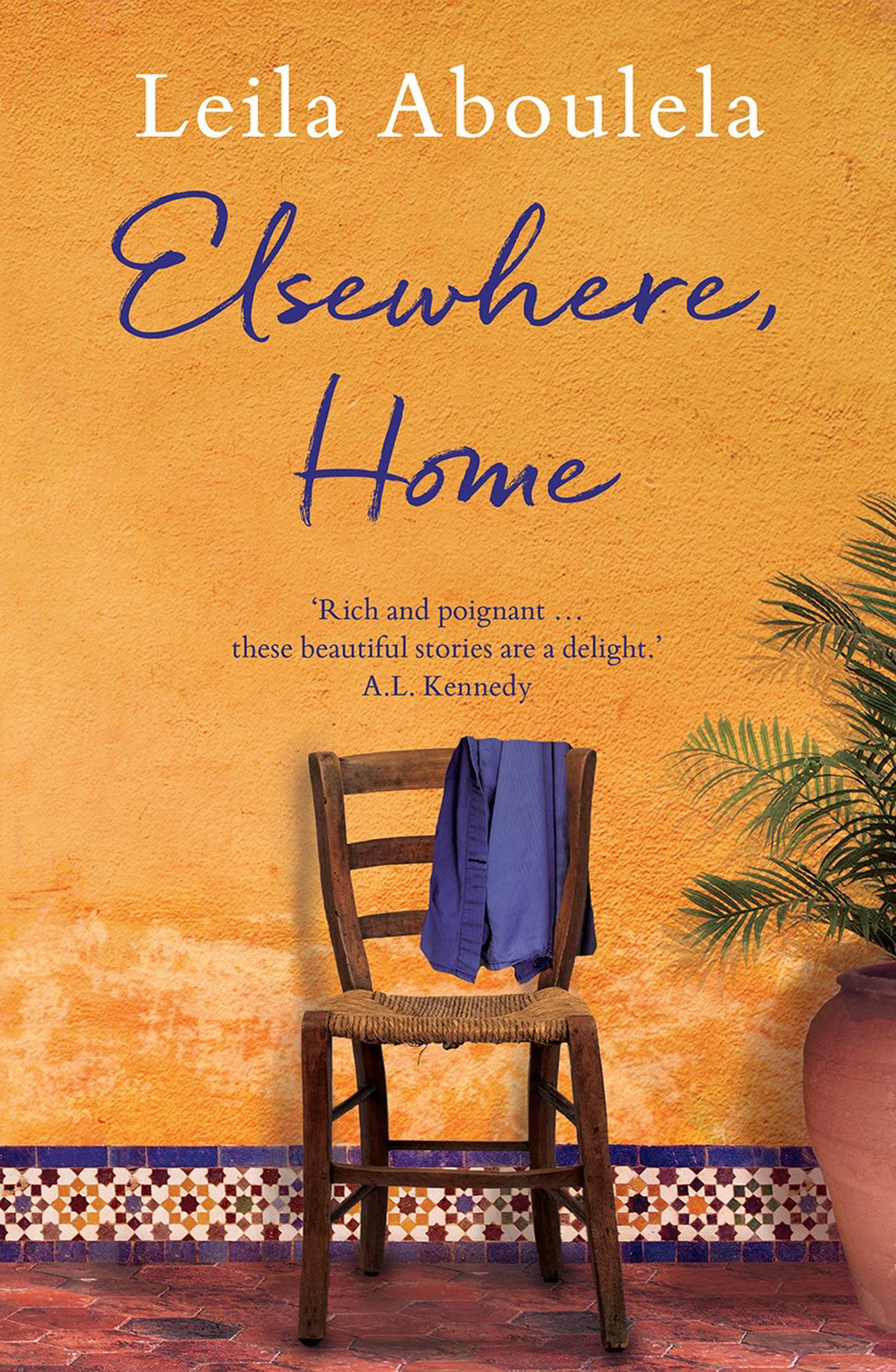
Leila Aboulela’s arrival in Aberdeen in 1990 could have been a long day’s journey into night. After all, here she was in a new city in a new country at just 26, with a four-year-old son and a two-week-old baby for company.
Her husband worked offshore in the energy sector and she was often left alone to navigate the disorientating elements of her circumstances.
She admits she was homesick for Khartoum, the capital of Sudan, where she had grown up, been educated at university and established many friendships. And she quickly became aware that bringing up a child is one of the most difficult things in the world.
Yet, in the midst of what could have been a rather grim story of struggle, isolation and loneliness, Leila realised she was starting to fall in love with the Granite City and its cosmoplitan nature as she noticed people from so many different nationalities dwelling in, if not perfect harmony, then something not so far away removed from it.
And it was the catalyst for her beginning to write, write, write….to the stage where, 30 years later, she has become an internationally-recognised, award-winning author.
The importance of libraries
Her experiences demonstrate the importance of such facilities as libraries and community centres; places where strangers can meet up and learn lessons together and derive inspiration from the recognition they share a common passion.
In her case, it was putting pen to paper, creating mesmerising novels which gained the attention of those who were working around her and helping her in her ambitions.
She told me: “I found that I could put all my anxieties and thoughts into fiction. First, I did a correspondence course in creative writing, then I attended evening workshops at Aberdeen University.
‘It was a big turning point for me’
“I was in the first Lemon Writers’ Group which was founded by the Central Library’s writer-in-residence, Todd McEwen. That was a big turning point for me.
“Instead of viewing writing as a hobby, I began to take it seriously and started sending my work to magazines. Without a creative writing degree (or even an English Literature one, since I had studied statistics in Khartoum), I had to educate myself by reading, practicing and figuring things out on my own.
“But I found Scotland’s literary community to be very supportive and welcoming.”
An exciting time for Scottish literature
There wasn’t overnight success. But gradually, as Leila poured herself into her endeavours, word spread about her ability. Novels such as The Translator, Minaret and The Kindness of Enemies opened many people’s eyes, while Lyrics Alley, originally published in 2010, won the Scottish Book of the Year award.
An author’s life can be a solitary existence, but not in this case. On the contrary, she was thrilled at the emergence of a new crop of Scottish writers who excelled in their fields.
As she recalled: “Because I started writing in the 1990s, at a particularly exciting time for Scottish literature, I was certainly caught up in the buzz and optimism.
“The Central Library hosted nearly all the rising and established stars of the time – Kathleen Jamie, Robin Jenkins, Alan Spence, A L Kennedy – and I always attended.
Connecting Sudan and Scotland
“Many of my novels and short stories are based in Scotland (notably Aberdeen) but of course Sudan figures heavily in my work as well.
“I am always trying to connect the two countries – Sudan and Scotland. In my latest novel River Spirit, I wrote about Charles Gordon (whose statue stands in Schoolhill) and the siege of Khartoum in the nineteenth century.
“The novel tells this turbulent history from the point of view of several Sudanese characters – a soldier, a slave girl, a mother- but there is also a Scottish artist and, through his eyes, we see Khartoum as it is increasingly threatened. I based his character on the Orientalist painter David Roberts who was born in Edinburgh.”
‘Publishers are taking less risks’
Given the pivotal role of libraries in her own career progression, it’s not surprising that Leila is concerned that these precious amenities are under threat from council cuts across Scotland, not least in Aberdeen, where a legal battle is ongoing.
As she said: “I depended heavily on the Central Library, Ferryhill Library and Portlethen Library when I first started to write, so it is very sad to see them face such difficulties. At the same time, I can see that there are much more opportunities and support provided for aspiring writers than there was in the 1990s.
“What troubles me most about the current literature climate is how advances, sales and financial benefits are becoming more and more the sole measures of success. Publishers are taking less risks and readers are not encouraged to tackle challenging books.”
New collection of short stories
Thankfully, there are other outlets and Leila’s work features in a striking new collection of short stories The Poet & The Echo, created in collaboration with BBC Scotland, which has recently been published.
Her star is in the ascendancy at the moment – she was recently reviewed in the New York Times and inducted Fellow to the Royal Society of Literature – yet it’s obvious that she derived particular delight from her involvement in this new melange.
She said: “I’ve only ever attended one writers’ residency in my life. This was at the Rockefeller Centre in Bellagio [in Italy]. We were all high up in the mountains, living in a huge old villa, which was surrounded by terraced gardens and, every day, I would go for a walk and soak in the atmosphere.
“Instead of focusing on the project for which I had been granted the fellowship, I started to write about the villa and the surrounding area. It was just descriptions and impressions. When BBC Scotland contacted me about the project of responding to a poem through fiction, I picked up these snippets and shaped a story out of them.
“I had always loved [the 13th-century Islamic poet] Rumi’s poem about the spiritual marriage of minds which takes place in a garden. The poem and the Bellagio villa both came together to make up the story in the anthology To Enter the Garden.
Hopes for new novel
“With regards to new projects, I’m hoping to start a new novel, but I’ve been distracted by travelling to promote River Spirit.
“Since it was published in March, I have been to Abu Dhabi, Nairobi and Berlin – in addition to events throughout the UK – and I am now embarking on a North America reading tour, which starts in Toronto in Canada and ends in Madison in Wisconsin.
“It’s exciting to travel and meet readers, but I’ve already started to long for the Aberdeen winter and my writing desk.”
She may have been born thousands of miles away. But Leila Aboulela has a clear message: “Now, when I am asked, I say I am from Aberdeen, not Khartoum.”
Five questions for Leila Aboulela
- What book are you reading? I’m re-reading Nineteen Eighty-Four by George Orwell and the newly-released Brotherless Night by V V Ganeshananthan. I often read two books side by side.
- Who’s your hero/heroine? Imam Shamil, the 19th century leader of the Caucasus who fought against Russian Imperial expansion because he knew when to fight and when to surrender. My novel The Kindness of Enemies is about him.
- Do you speak any foreign languages? I speak English. Arabic is my mother tongue.
- What’s your favorite music or band? Bob Marley, I never moved on past him.
- What’s your most treasured possession? My eyeglasses, I would be lost without them.





